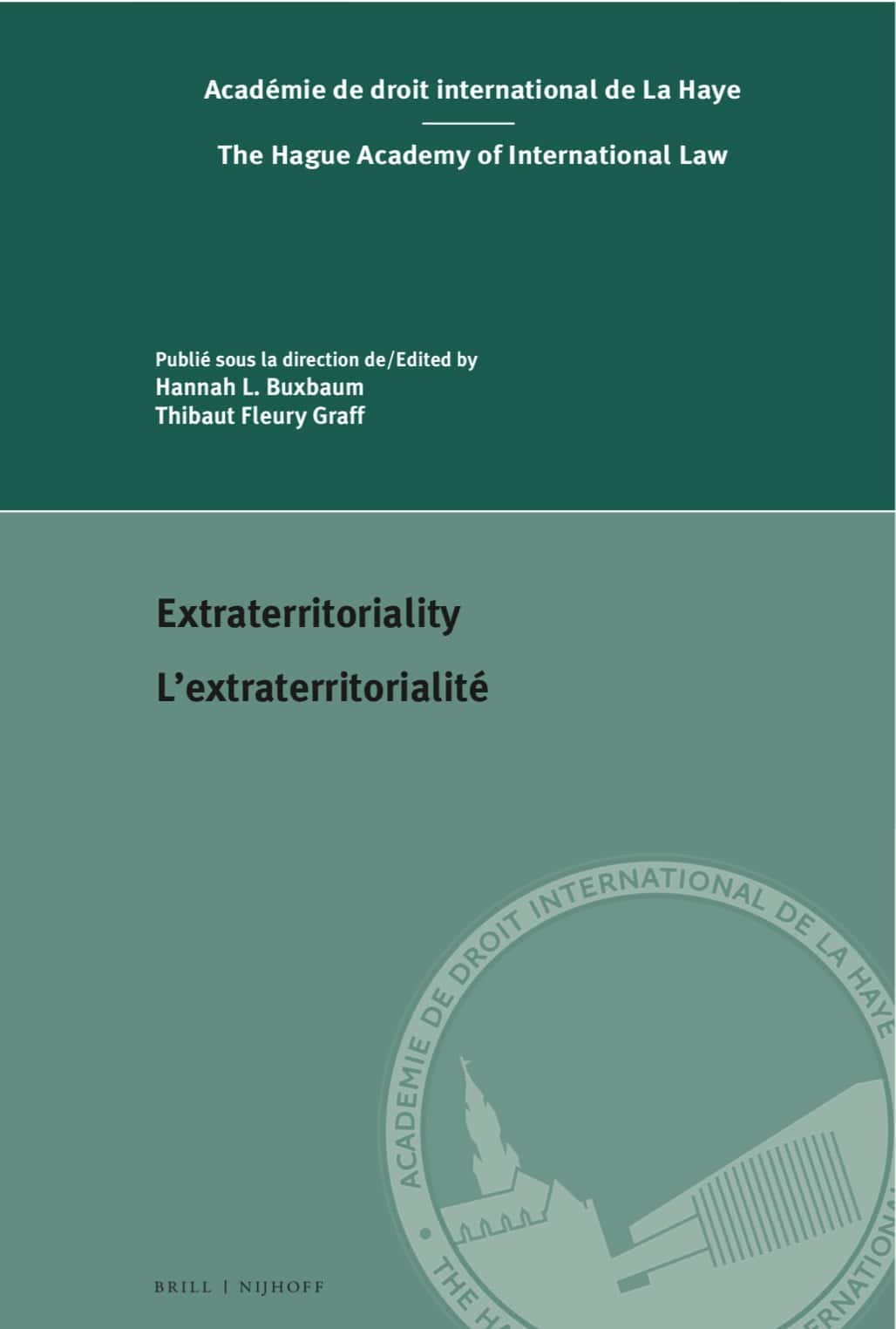Surveying Extraterritoriality
September 19, 2022

TLB advisor Hannah Buxbaum has posted to SSRN a piece entitled “The Practice(s) of Extraterritoriality.” It is an introductory chapter from the book Extraterritoriality/L’extraterritorialité, edited by Buxbaum and Thibaut Fleury Graff, which grew out of the 2019 Centre for Studies and Research at the Hague Academy of International Law.
Buxbaum’s chapter is a masterful survey of extraterritoriality by one of the leading experts on that topic. She takes the reader from the Treaty of Westphalia, through the development of extraterritorial bases for jurisdiction, and on to modern innovations like human rights treaties that require the exercise of extraterritorial jurisdiction. The chapter is a must-read for anyone interested in extraterritoriality. Here is the abstract:
Extraterritoriality has a bad reputation. The term has acquired inescapably negative connotations as a result of its alignment with one particular practice: a state’s regulation of foreign activity without the consent—or, worse, over the objections—of the state in which the activity occurred. Yet while that practice has become common, particularly in the area of economic law, it is by no means the only form of extraterritorial governance. Exercises of legal authority that affect persons, activity, or interests outside the lawmaker’s territory take many forms and serve many purposes—and in many cases are unobjectionable as a matter of international law and policy.
Equating extraterritoriality with an overreach of state authority elides the significant differences among such practices, and this work seeks to explore the full range and variety of extraterritorial regulation. The chapter draws examples from many areas of substantive law, including criminal law, economic regulation, and human rights regimes. It considers different modes of extraterritorial governance, examining both unilateral regulation and regulation undertaken within treaty frameworks. Finally, the chapter identifies circumstances in which states practice extraterritoriality not to advance local interests but to achieve collective goals or protect global goods—as well as circumstances in which extraterritoriality is not merely permitted but is a state obligation.
The chapter explores not only the descriptive but also the normative dimensions of extraterritoriality. Although doctrine in this area relies heavily on geographic facts, the point of calling an exercise of legal authority “extraterritorial” is not to say something about the physical space in which a state acts. It is to say something about the legal space in which a state acts—that is, its jurisdiction. And the relationship between physical space and legal space is highly contingent, shifting across contexts and over time as a result of changes in international law and modes of human interaction. I approach extraterritoriality as a legal construct used to mediate the ever-changing relationship between regulatory needs (both of individual states and of the international community) and prevailing theories of sovereignty.
For more on extraterritoriality, check out TLB’s Primer on Extraterritoriality as well as the posts collected on the extraterritoriality Topic Page.